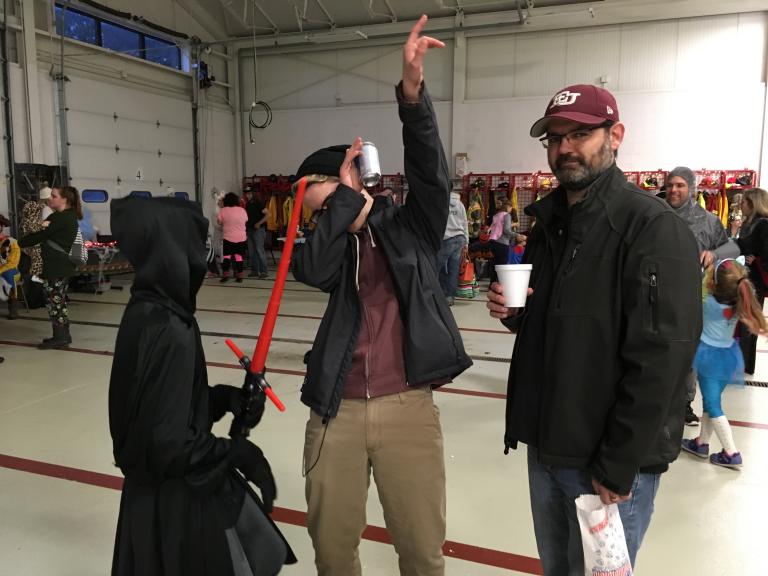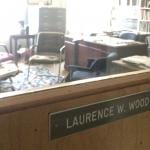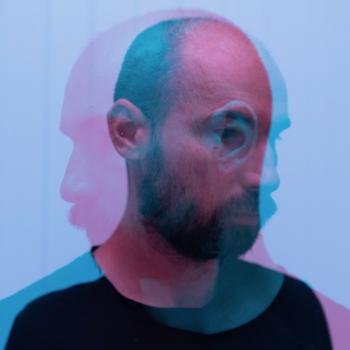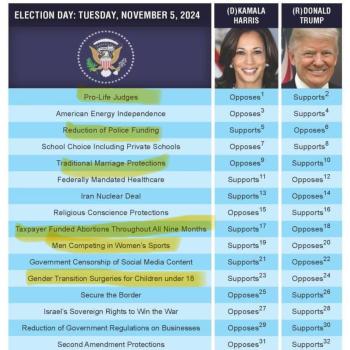When one of my responsibilities was being a PR man for a college, I spent some time with the someone who was doing a lot of media editing for us. I’m not sure how many computers and recording devices he had in his shop, not to mention cameras. As we talked about the quality of a master copy, he said that it’s difficult to burn it to a second generation, because something is lost in the quality. At least that’s the way I remember the conversation nearly 20 years later. If a master copy is really clear, it takes all types of tools and computer programs, like the ones he had, to even come close to duplicating the original. The second generation is seldom as crisp, clear, and brilliant, neither as film nor as audio.
He was a good Christian man, one who had been in ministry and had worked with ministers. Like the master copy and the less bright second generation copies, this man believed that it was the same way with the great ministers. Their children or disciples are seldom as bright, without a lot of tweaking through specialized tools.
To my knowledge, this man never met Dr. Robert H. Spence, President of Evangel University who raised up many “second generations” of what he called Change Agents.
His son, Dr. Jon Spence and Dr. Michael Palmer were overseers of the a multi-million dollar grant to Evangel from the Lilly Endowment for Christian leadership. One of the initiatives they started at Evangel was Project Envision. I was honored to be serving on campus during part of that time as a Student Development Professional, and to be a Facilitator in the campus-wide training of student leaders.
I saw no disparity between the father and son. Both shared a love for Evangel and the Springfield community, the seat of America’s Assemblies of God, although their General Superintendent holds one seat at the table of the World AG Fellowship.
Both Spences were committed to raising up “second generations” of Change Agents. Dr. Jon Spence still serves at Evangel as the Director of Student Success.
Since that time, Dr. Michael Palmer has continued his luminous journey, now a Professor in the Divinity School at Regent University in Virginia Beach.
I sat on the edge of the stage with others from the Student Development team, and one of them started questioning me about my hopes for a research doctorate, for teaching, for integrating psychological theory and Theology, for formal writing, and my hopes to be part of research fellowships. Amy was pleasant enough to talk to, so I normally wouldn’t mind sharing so much with her, but she persistently kept asking questions. However, I was a little embarrassed because about 150 student leaders were filing-in and filling the auditorium.
To make matters more embarrassing for me, we were sitting on the edge of the stage, and President Spence was sitting on the first row directly opposite of us.
Amy knew what she was doing. I realized President Spence must have heard every word.
It was at another forum in the same auditorium later that semester that President Spence gave a speech about articulating your vision to a S.R.O. crowd. He worked so well with the development side of Evangel, that some of the talk had to do with garnering support for the school. Some of his talk was about the nonsense of choosing a school based on pollsters who do yearly rankings, because there were a lot of student leaders in the auditorium, and they tend to be upperclassmen.
He was a master communicator. Even those in the room that were from the communications department were in awe of his uncanny abilities as an orator. I could hear them whispering during the talk, wondering who he was talking to.
It was one of those speeches that was like a good sermon. He could have been stepping on everyone’s toes, or it could have been the conviction of the Holy Spirit, or they could have been working in tandem. President Spence could talk to anyone in the room, or perhaps to a few at a time, or to a crowd in general. It seems like I never knew his purposes with a talk like that, until he began speaking.
Whether President Spence was talking to me is beside the point, but I believe his talk answered my questions from earlier in the year.
I had many hopes, but I came to the conclusion when he spoke that I needed to articulate my vision. My hopes could very well be fulfilled now in that consortium of colleges in Springfield. In fact I have a current colleague who will be receiving his Th.M. shortly, and may soon go on for his Ph.D. I’m sorry I don’t have a hotlink for James, but you may find him working nonstop at the big blue building in Springfield, where Gospel Publishing House is.
President Spence said that whether it’s someone who wills part of their estate to a university, or a doctorate program assisting you through the matriculation process, someone is waiting to buy-in if you will articulate your vision.
Articulating your vision is not taking on the role of a salesman, but it is being a good steward of the hopes and vision that God has granted. In some ways, I feel like President Spence took me to school that day, and I heard a snippet of his philosophy on being Change Agents by learning to articulate your vision.
Then there are the landmark moments when only a brief word was spoken in passing, or when I would have an appointment in his office.
There was a time when some students who were under my leadership were clearly breaking campus policy repeatedly, and in a way that was stirring up dissent. As a Student Development team, we were getting to the point of brainstorming in our meetings, looking for solutions.
One day on the way to the administration building through one of the long corridors, President Spence approached walking the opposite direction.
He looked straight at me and asked with a serious tone, “Jared, are we going to get this situation under control?”
Then his wry smile eventually edged out on his face, as if he were really saying, “Take courage. You’ve got this!” I needed that moment. I began to work closely with mid-level professionals, colleagues, and student leaders to bring the situation to a quick resolution.
One of my colleagues named Michael also taught a basic Christian doctrine course, that was required for all students at Evangel. He asked me to teach for him, which eventually . . . and unwittingly . . . led me into dialogue with the office of the Dean of Theology. Then, during another corridor conversation with President Spence (this time we were both heading in the same direction for awhile) I asked what it would take to teach in the Theology department.
Without a moment’s hesitation, he smiled and said, “That’s easy! Join us.”
President Spence was talking with one of the other Student Development Professionals named Rhonda. We had both been curious about how President Spence could keep up with his hectic schedule. He seemed to be at every major meeting, and he even appeared at what we thought were some minor meetings. He was also a well-respected leader in Springfield, involved in many ways. He was given an award for citizenship by Springfield while I was on campus. It showed me again that he practiced what he preached about being Change Agents.
So naturally, Rhonda and I were curious about his leadership prowess and logistical coordinating superpowers. It was nothing new. We were and still are curious about leaders. In fact Gina Rentschler, Director of Community Life, used to say: “Jared and Rhonda talk about leaders in the whole P.C.G. the way we talk about leaders in Springfield.”
President Spence even attended many evening meetings and sporting events, so who knows how many 16 hour days he worked, because he also maintained office hours. So when Rhonda asked about all these things, he replied (and I paraphrase):
I show up on time and know that all eyes will probably be on me for awhile. But I wait for all eyes to eventually turn their attention back to the event, so I can turn my eyes to the hall that leads straight home.
He had a way of really connecting, offering a little advice (sometimes with a tasteful double entendre to top it off), and he remained authentic . . . all at the same time. Talking with him was never boring.
When we first heard the news of his crossing over, Crystal said “Daniel and Rhonda will probably go to the funeral,” and I’ve heard that hundreds showed up.
Crystal spoke in a way that made me think she was disappointed.
At first, I thought she was just a little envious that our friends travel more often than we do . . . but no, President Spence had an affect on my family as well. He modeled a good marriage and family life.
It was as if the philosophy of becoming Change Agents was already old news to those who were in his family, and to those who had run with him for many years.
Together, they embodied his Theological and sociological construct.
They were just teaching it to new generations of students and campus leaders like us.
At one point, some of us Student Development Professionals had gathered for a meeting with Gina. If I remember correctly, Gina stated that President Spence wanted to do something to reward or really connect with us.
One of us asked about President Spence’s presidential dining hall. He would gather there with guests, but I don’t think any of us had ever had a meal with him in that hall, except for Gina.
It wasn’t long before we were all around his table, dressed to the hilt, enjoying some fine dining. However, what made it fine dining wasn’t as much the atmosphere or the food. It was him.
For those who have never seen the Academy Award winning Judeo-Christian movie Chariots of Fire, I simply cannot capture the meaning in a few words.
There is a scene early in the movie, where leaders and students are gathering in tuxedos with white collars. They’re eating in a finely decorated hall in Cambridge . . . yes, The Cambridge.
The President begins to expound upon the heritage that they have, the names of great alumni on the walls surrounding the hall, almost with tears in his eyes, and his voice breaking with emotion.
Then comes the moment before the charge that the President lays before them. The Greek term othismos captures the essence of such moments.
The charge is made well, but it seems to be more about the unbelievable grace and eloquence the President uses to make the appeal.
Chariots of Fire is not only an Academy Award winning movie, it’s also a true story. You see, many of the students at those very tables . . . in that hall . . . in that moment . . . became medalists at the next Olympics.
If you were able to track the lives of those enjoying dinner with the President that day . . . the team they assembled for the U.K. . . . and the lives of those who joined their team, then you would be keenly interested in their ongoing narratives.
Now some of my colleagues may remember the dinner with President Spence differently, or they may not remember it at all, but I remember my time sitting at his table that way.
It was the freshman dinner at Cambridge, but many of us at Evangel were more like seniors . . . but do you know if we were more like undergraduate seniors, or more like graduate seniors?
Do you know our stories?
None of us became Olympic medalists that I know of, but we’re all Change Agents, and I’m honored to have sojourned among them.
That day President Spence made no formal speech like the Cambridge President, but as I have shown above, he never needed a lot of words to convey great meaning.
For those who never learned the system, Evangel was the king’s court, and we were more than likely always dining at President Spence’s table, no matter who we were communicating with.
If we allowed the system to work for us, we would become Change Agents by the time we were launched into the world.
That’s also probably the way it was for President Spence himself.
By the time I arrived on the scene, the legends abounded.
Time had told of a small Christian school that was under the microsope of the fellowship. The small Christian college had not really defined herself yet. A young President was at the helm, whom the denomination had basically taken a risk on because no one was hiring young Presidents at that time.
One of the crucial elements was whether or not the small college would become just another preacher’s school or not, because they were under the microscope. The young President eventually turned the tide, keeping a cohort of upper level administrators and leaders with him for many years.
He also was good at retention, not only with students but with mid-level professionals as well. Some of them went on for their education while remaining on staff, and eventually were promoted. For instance Sheri Phillips was a mid-level Director who was working on her doctorate through Azusa Pacific at that time, traveling out to classes to meet with her cohort for a week in January and a week in the summers. The cohorts worked together online in other ways as well. Likewise, many students eventually found entry level positions, and have similar stories to tell.
The small college eventually became a university, not in name only, but also in structure . . . a college of colleges, so to speak.
Awhile ago, I researched colleges who develop, not only liberal arts, but also sports departments at the Division-I level. Although I haven’t studied the development of sports in smaller colleges, the research shows that sports assist in the college’s growth in innumerable ways. My research was not conducted for any formal project, but more out of my curiosity about collegiate growth and leadership.
So the small college developed athletic programs that boasted triumphs in ways that complimented the victories in the developing colleges of the university. One of those academic victories was that he even led the university through a time when they changed accreditation agencies, which is a major undertaking. The former agency one was requiring too many stipulations that were probably imposed by the Department of Education. The accreditation agency simply was not big enough to lobby in a way that would protect Christian schools, and did not have a point of reference for working with larger schools like this growing university.
The legend goes that it all happened on the watch of a young President that the organization took a risk on.
He was committed, not only to being a Change Agent, but also to raising up a cohort that would change the culture, to be a bigger engine that produces Change Agents.
Does his narrative sound familiar?
What about leaders in your school, alma mater, church, or organization?
Are there legends of new Change Agents yet to be told?
Do you hope to make a lasting contribution to your school, church, or organization?
featured image:
I wouldn’t post a picture of President Spence during this time without seeking counsel from those who were closer to him. However, there are still days when the thoughts from the campus life at Evangel flood over me, and I still wear the authentic baseball team hat given to me by the coach. No, that is not my Halloween costume.

Pictured with me are my oldest son, who was born within a month of my first day of work at Evangel. My second born came along within a month after I had resigned. I’m thankful to the leaders at Evangel, including President Spence, for graciously welcoming not only employees, but also their families; never an imposition to take a brief moment to really connect with families. In fact, one of the members of President’s Spence’s Cabinet at the time, claimed that we named our second born after him!













